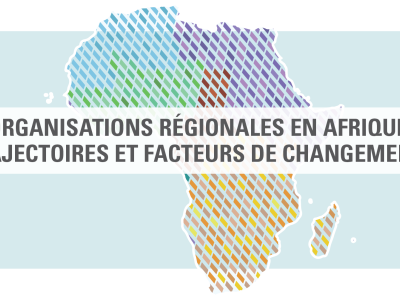
The EPA: A Political Agreement Detrimental to Economic Development and Cooperation Between Europe and Africa
During the 45th ordinary session of the Conference of Heads of State of the West African Community held in Accra on 10th July 2014, the 15 member countries of the Economic Community of West African States (ECOWAS) and Mauritania officially approved the signing of the Economic Partnership Agreement (EPA) with the European Union (EU). As a result of this decision, the ECOWAS represents the first African region to have signed such a trade agreement with the EU. The agreement was concluded at a decisive moment for West Africa, the world’s leading high-growth region.
An analysis of the impacts that EPAs have, the underlying reasons for the agreement and the consequences for relations between Africa and Europe is needed.
Impact of the EPA: Testing rumours against the facts
From the start of the negotiations, all the West African actors understood that negotiations were not about economic development, simply because there was no reason to exert such pressure on states to sign an agreement intended to offer them a better future. Furthermore, why sign agreements in secret if they are supposed to have a positive effect on populations?
To get a better global understanding, we need to look closely at each of the arguments put forward by negotiators on both sides: the EPA promotes growth, the EPA promotes investment, and the EPA promotes development. These are mere rumours.
Rumour no. 1: The EPA promotes growth
The EPA actually threatens West Africa’s main source of growth: agriculture. Heavily subsidised European products (over CFA 270 billion, or roughly € 414 million) will destabilise West African agriculture, leading to lower relative prices, particularly for stockbreeders and milk producers.
In effect, the EPA legalises dumping by introducing these heavily subsidised products, which will stifle regional production, reduce the profitability of numerous agricultural products and contribute to an unprecedented deterioration of living conditions, especially amongst the most vulnerable – these being stockbreeders and women who sell milk.
Not only will the EPA shatter the shield of resilience, but it will also prompt massive rural–urban migration, which, because of a lack of opportunity, will, in turn, result in illegal immigration to Europe. Consequently, the EPA will demobilise rural populations in their attempts to secure a future of prosperity and peace for themselves in their territories. Moreover, the agreement puts to the test the trust between senior officials and populations who are already traumatised by disappointment in those in whose hands they have placed their future. In the final analysis, the EPA cannot be said to promote growth, as it actually threatens West Africa’s main source of growth.
Rumour no. 2: The EPA promotes investment in West Africa
According to The Economist, Africa south of the Sahara is the world’s most popular region in terms of investment intentions. A global consensus thus confirms West Africa’s place as the world leader for attracting potential investment. Even without the EPA, global investors will choose West Africa, which yields the highest profit per franc invested in the world.
The reality is that the EPA diminishes this prospect by limiting access to the region to European investors. The EPA distorts investment flows to the region by developing an implicit preference for European investments above other investments.
As a result, the agreement will constitute the most significant barrier to investment in West Africa from other parts of the world. Indeed, the region will be threatened by other global investors, who will be playing an ever more important role in global investment, and who will demand the same preferential treatment as that given to Europe. It is thus very likely that the US will attach such a condition to the renewal of the African Growth and Opportunity Act (AGOA).
Rumour no. 3: The EPA promotes economic integration and development
By implicitly subsidising European products, the EPA creates a trade diversion benefiting Europe and discourages the production and consumption of local products in favour of European imports. The agreement reinforces the division of labour in West Africa, which provides raw materials to European industries, yet does not give West Africa access to the European market, which is, in fact, protected by technical barriers to trade.
Furthermore, the West African states will suffer tax losses as a result of the EPA, thereby rendering them less able to face development challenges. These tax losses will, in turn, eventually lead to a balance of payments deficit exacerbated by a trade balance and capital deficit with respect to the EU, a situation that will diminish the capacity and quality of monetary policy in the region, and thus economic policy to promote development.
As we have shown, the EPA will prompt rural–urban migration followed by illegal immigration to Europe with lower relative prices in the agricultural food sector. This wave of migration will be all the greater since regional integration, the region’s chief potential asset, will be threatened by the EPA, which effectively introduces legalised dumping at the expense of regional products and a trade diversion benefiting Europe.
The illusion that Europe is funding the EPA Development Programme (PAPED) has been created for West Africa’s benefit; in reality, the subsidies on European products to destabilise markets, in particular those of agriculture, and representing over €414 million a year, will cause more damage than the amount budgeted to fund the PAPED.
Underlying reasons for entering into the EPA
Europe and the US represent only about 35% of global GDP, and their share will continue to shrink. The West’s waning importance in the global economy is linked mainly with a loss of market share and an ageing population.
One of the strategic reasons for the new world situation is the dynamic economies of emerging market countries and their grip on the world’s natural resources.
Inversely, West Africa abounds with natural resources, and its population is undergoing an important change, which gives it a large market.
For Europe, the EPA is a powerful tool allowing it to be towed along by one of the most dynamic markets in the world and, more importantly, providing it with uncontested access to resources.
For the political leaders of West Africa, the agreement gives them a way to consolidate their power in the run-up to elections and, more importantly, to benefit from political support from the EU.
Therefore, such EPAs are, in actual fact, political agreements hiding behind supposed economic agreements meant to make up for the European economy’s lack of competitiveness and to give political support to the signatory heads of state.
The EPA: A tool for destroying the partnership between Africa and Europe
As the facts show, the EPA will exacerbate poverty in rural areas, particularly for nomadic populations working as meat and milk producers.
It is expected that illegal immigration will accelerate and that far-right parties will influence public policy in Europe and endanger cooperation between Africa and Europe. African public opinion will be characterised by growing anti-European sentiment, providing ideal conditions to other countries, particularly emerging markets, which offer more growth potential and which refuse to sign economic agreements forcing West Africa to trade with them while maintaining their subsidies on exports. In reality, the EPA is a true subsidy which will strengthen trade between West Africa and other countries, particularly emerging markets.
In addition, West African governments wishing to sign the EPA will have difficulty explaining to their populations, particularly during upcoming electoral debates, the reasons for their choice, which will help destroy the regional market and implicitly tax local products in favour of European products, while accelerating rural–urban migration and illegal immigration.
Conclusion
The EU has come to West Africa seeking a stable market and will benefit from the development powerhouse that is West Africa with its strong growth, young population and dynamic market. In exchange, Europe is offering a short-term political subsidy to African political leaders, thus transforming an economic agreement into a political one.
West Africa and Europe will emerge weakened by this agreement, as it fails to reflect the underlying needs of both parties. It is for all these reasons that the Network of Farmers’ and Agricultural Producers’ Organisations of West Africa (ROPPA) will mobilise in Africa and in Europe to mount opposition to the EPA using all legal means at its disposal.
Kalilou Sylla is Executive Secretary of the ROPPA.
Mamadou Cissoko is Honorary President of the ROPPA.
Marie Louise Cisse is Senior Advocacy and Gender Programme Officer with the Executive Secretariat of the Network of Farmers’ and Agricultural Producers’ Organisations of West Africa (ROPPA).
This article was originally written in French and has been translated to English at the request of ECDPM. To read the original version please click here.
This article was published in GREAT insights Volume 3, Issue 9 (October/November 2014).




